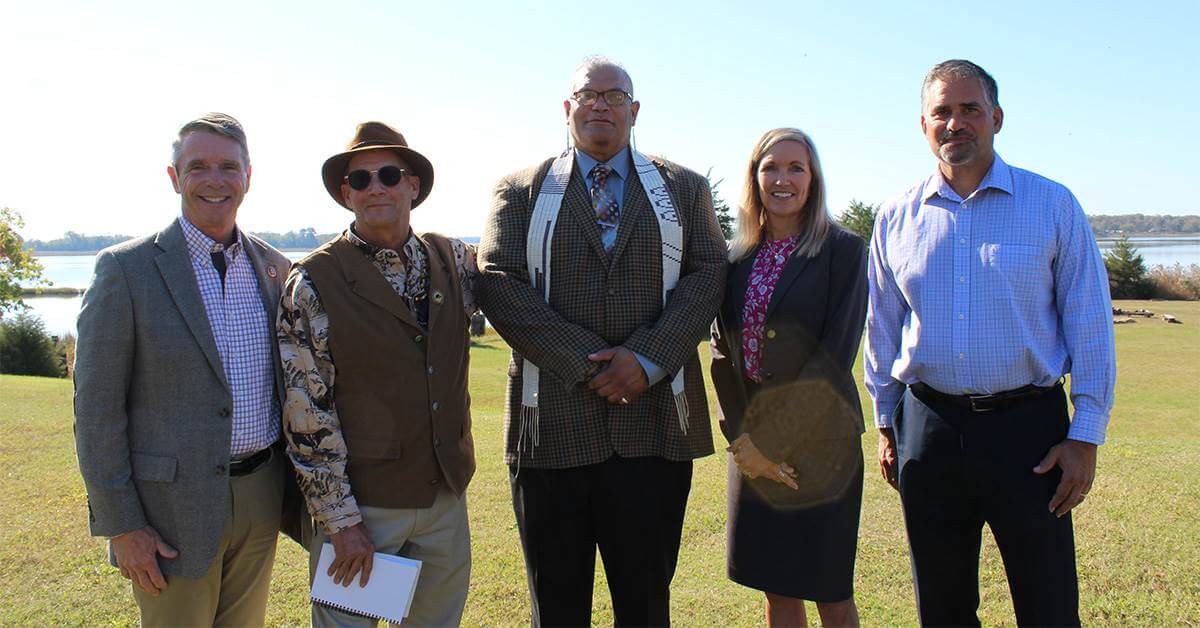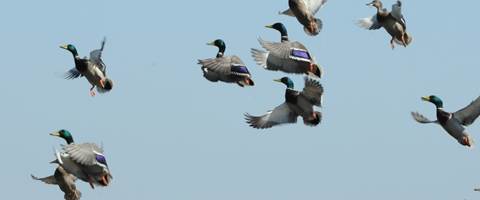November 15, 2023 •
2
min read
Ducks Unlimited and its partners in North Carolina and Virginia recently received a North American Wetlands Conservation Act (NAWCA) grant that will protect and enhance over 2,350 acres of wetlands along the Mattaponi and Blackwater Rivers in Virginia, and will also include projects at Mattamuskeet and Back Bay National Wildlife Refuges.
“The Mid-Atlantic Blackwaters & Bays II NAWCA grant will ensure the enhancement of important waterfowl migratory and wintering habitats at Mattamuskeet NWR and Back Bay NWR, while also protecting critical wetlands habitats along riverine corridors in eastern Virginia for public access and enjoyment,” said DU director of conservation programs for the South Atlantic, Emily Purcell.
The Mid-Atlantic Blackwaters & Bays II project aims to permanently protect 1,412 acres and enhance 947 acres of wetlands and associated uplands in Virginia and North Carolina in conservation priority areas designated by the Atlantic Coast Joint Venture to benefit waterfowl and other migratory bird species.
Protection activities include the fee-title acquisition of 372 acres of tidal marsh along the Mattaponi River in partnership with the Wildlife Foundation of Virginia and the acquisition of 90 acres of forested lands along the Blackwater River to expand public access. Protection activities also include the acquisition of permanent conservation easements on 950 contiguous acres of forested wetlands and associated uplands along the Blackwater River in partnership with the Virginia Outdoors Foundation. Enhancement activities include improvements to 947 acres of wetland habitat on Mattamuskeet and Back Bay National Wildlife Refuges.
Ducks Unlimited’s partners on this project include the Virginia Dept. of Wildlife Resources, Hampton Roads Sanitation District, Wildlife Foundation of Virginia, Private Landowners, Virginia Outdoor Foundation, Obici Healthcare Foundation, and Franklin Park Foundation.
Since its inception in 1989, North American Wetlands Conservation Act (NAWCA) grants totaling more than $1.83 billion have leveraged $3.75 billion in contributions from partners. These contributions have far exceeded match requirements, allowing for the successful implementation of wetland restoration projects across North America. Federal and non-federal funding has resulted in conserving more than 30 million acres of wetlands and associated uplands across North America. The abundance of wildlife, including many species of waterfowl, other migratory birds, fish and mammals supported by wetlands, translates into multi-billion-dollar activities for Americans who enjoy hunting, fishing, wildlife viewing and photography.
NAWCA partnership grants play an important role in meeting Ducks Unlimited’s mission, from restoring altered wetlands and enhancing water quality to reducing soil erosion and mitigating the damaging effects of floods. In addition, many projects provide outstanding recreational opportunities, like hunting and bird watching.
“Since its inception in 1989, NAWCA has seen unrivaled success in restoring North America’s threatened migratory bird habitats,” said Ducks Unlimited CEO Adam Putnam. “These projects not only support natural places, but they are also good for local economies, support outdoor recreation, improve our water quality, reduce erosion and protect against flooding. We thank our friends in Congress for supporting this vital program and look forward to getting these projects underway in North Carolina and Virginia.”
Visit DU’s dedicated NAWCA webpage to learn more.
Ducks Unlimited Inc. is the world's largest nonprofit organization dedicated to conserving North America's continually disappearing wetlands, grasslands and other waterfowl habitats. Established in 1937, Ducks Unlimited has restored or protected more than 16 million acres thanks to contributions from more than a million supporters across the continent. Guided by science, DU’s projects benefit waterfowl, wildlife and people in all 50 states. DU is growing its mission through a historic $3 billion Conservation For A Continent capital campaign. Learn more at www.ducks.org.



